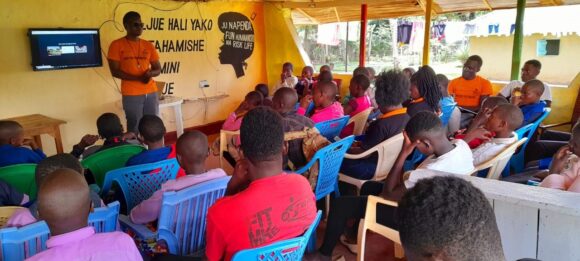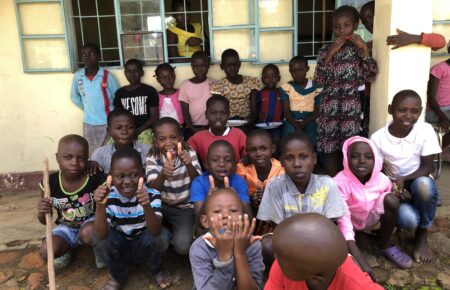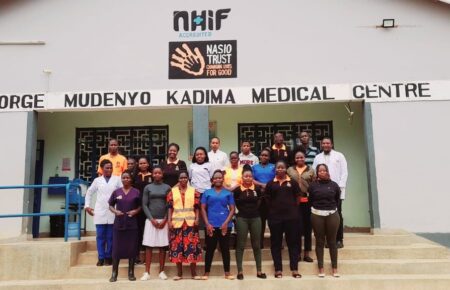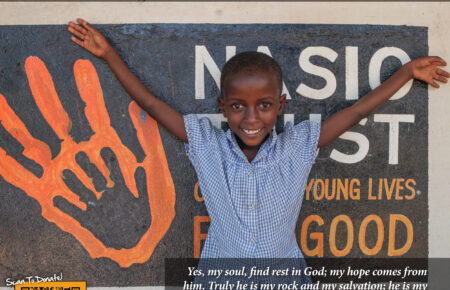Peer Education Programme
The Peer Education Programme is a youth-led, peer-to-peer Sexual and Reproductive Health Programme aimed at young people aged 12-24. The programme destigmatises HIV, STIs, and teenage pregnancy in the Mumias-West community. It also sensitizes the community to recognise and combat these issues through increased awareness. We are proud to have trained 466 peer educators in the past three years of the programme.
The project has been vital to initiate change in a community that has high rates of HIV positivity (5%) and teenage pregnancy (the county had the second-worst performance across Kenya in 2020). Ensuring that the next generation is fully-equipped to respond to their health needs is the key to their empowerment.
Impact
The programme has reached a total of 3,700 beneficiaries in the past two years. Young people aged 10-24 have had the chance to increase their awareness and understanding of:
HIV transmission
HIV testing and therapy go hand-in-hand in the Peer Education Programme. In 2023, we have three functioning HIV support groups with 30 members that provide a safe space for those living with HIV to share their anxieties and find a community. Through our community outreach programmes, we have also tested over 100 people for HIV. These sessions are typically conducted through football games at local schools to garner more public attention. There has also been a 19% rise in young people undergoing HIV testing.
Teenage pregnancies and STIs
We have distributed over 3,000 condoms in 2023 through our outreach activities to adolescents to give them access to safe contraception. Since 2021, the programme has reduced teenage pregnancies by 60% in partner schools.
Period Poverty
Over 1,300 reusable sanitary napkins have been distributed in 2023 to young girls in secondary school. 65% of women in Kenya are unable to afford sanitary napkins, and engage in unsafe sex to receive such basic amenities in return.
Health Clubs
Seven health clubs are currently running in our partner schools and have a membership of over 200 students. The clubs are run by Nasio-trained peer educators in collaboration with their teachers, who also attend training conducted by Nasio’s instructors. The charity is working closely with its partners to mobilise support for a more inclusive sex education curriculum at government schools by lobbying the Ministry of Education.
The wider aims included providing sustainable livelihoods for young people, establishing behavioural change in the wider community and stigma-free access to contraception. In addition to these activities, the Peer Education Programme also focuses on increasing awareness of gender-based violence, substance abuse, peer pressure, and bullying to provide young people with the tools they need to have a confident journey through adolescence.
Riziki’s Story
Riziki is a 19-year old peer mentor, who has led the charge of sensitizing more people within the community. Her father died of HIV, leaving her family in destitution. As a peer educator, Riziki leads youth training sessions and does not shy away from demonstrating proper use of contraception or speaking freely about bodily changes that come with adolescence. Her confidence has earned her the moniker of ‘condom lady’ from local boda boda drivers (motorcycle taxis) who are part of the programme as well.
We thank the Egmont Trust for their generous funding of the project since 2018.



